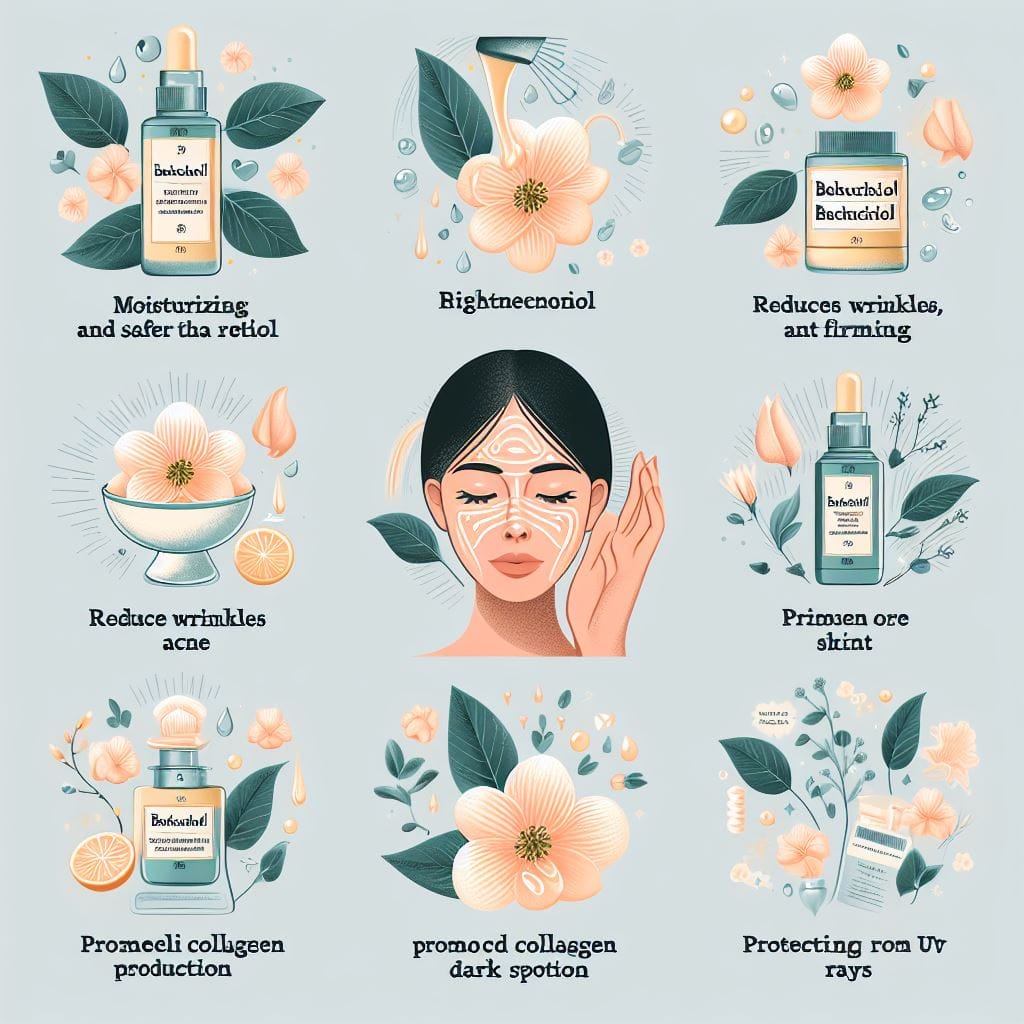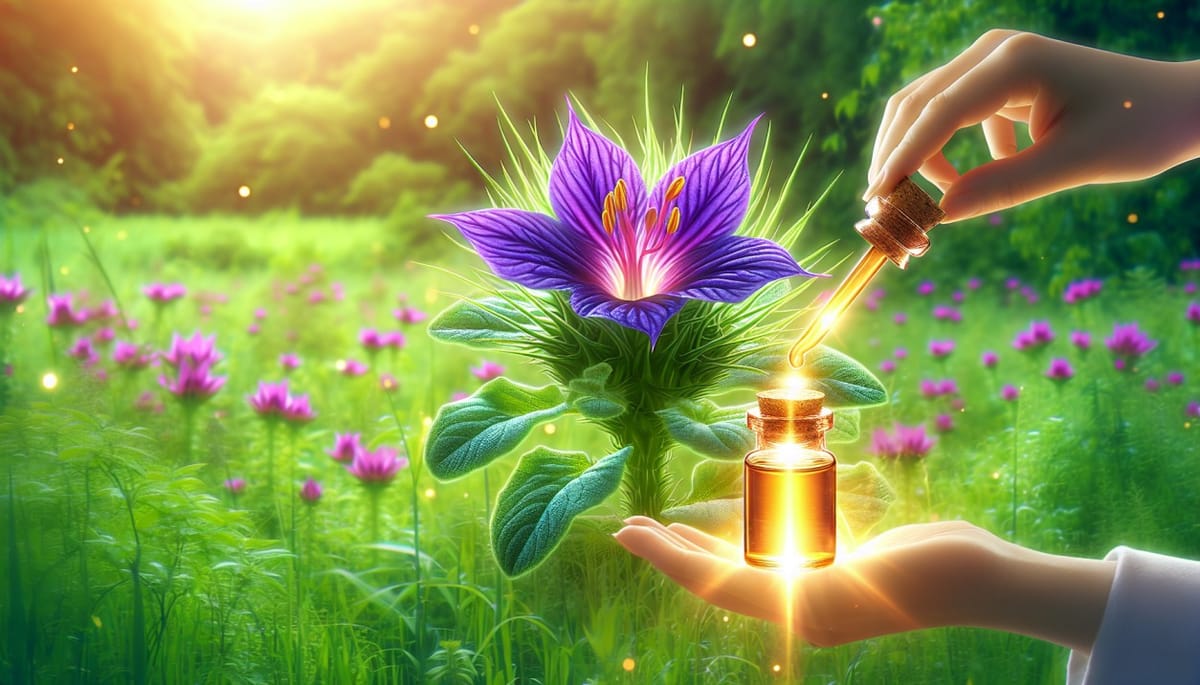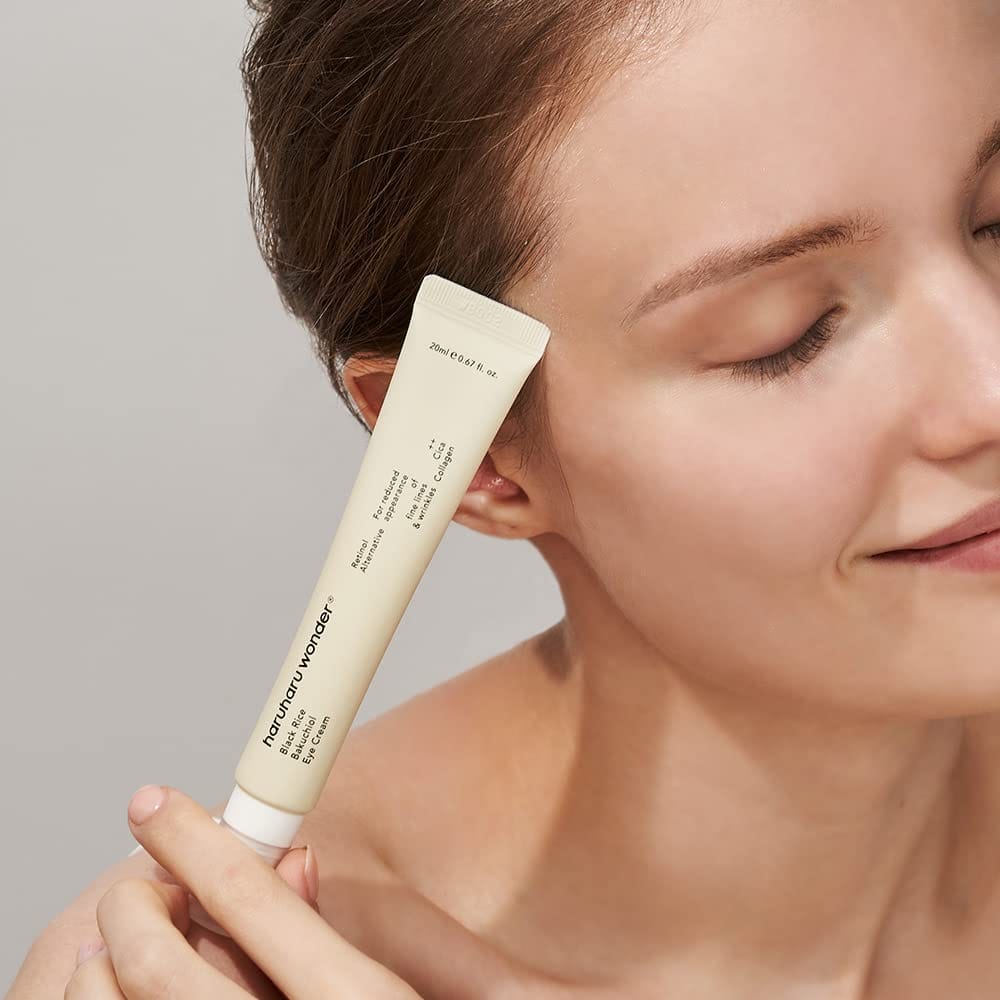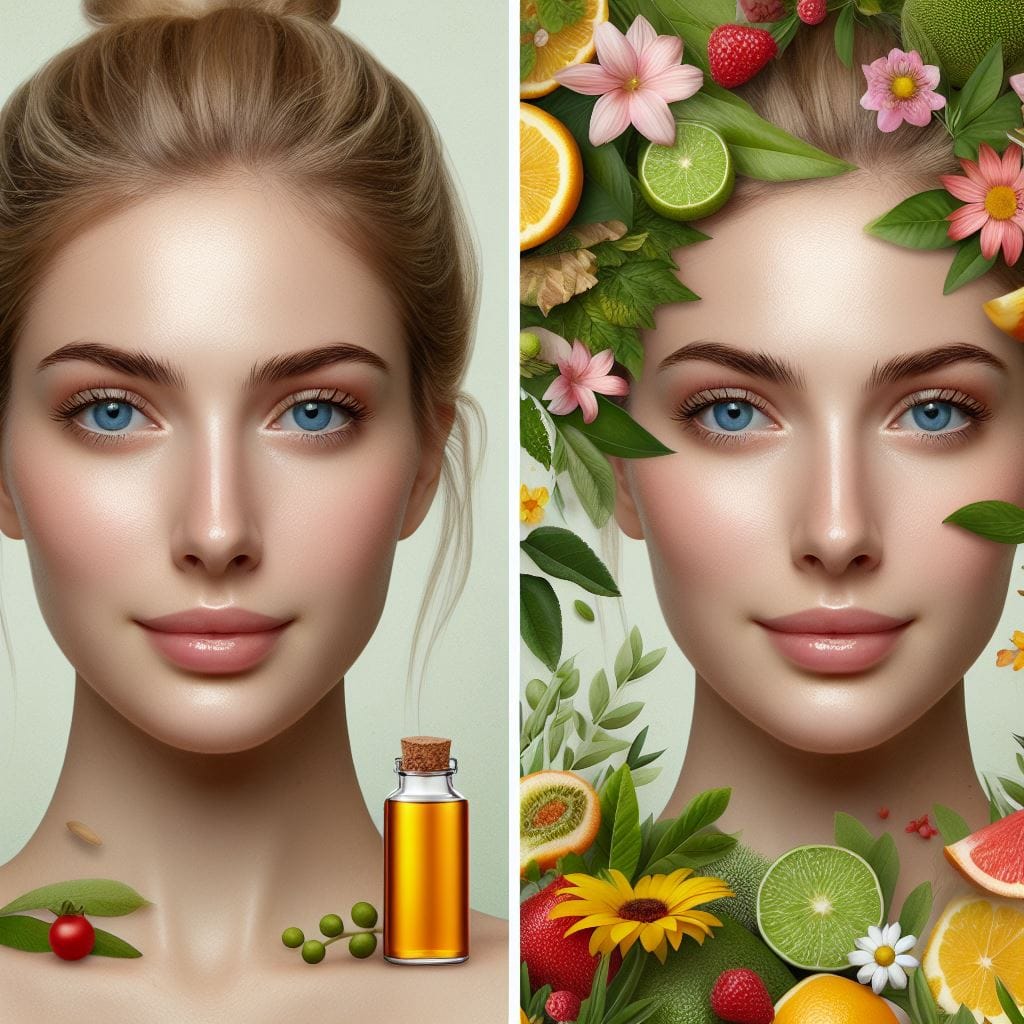Bakuchiol has sparked interest for those seeking gentle skincare alternatives. A plant-based powerhouse, bakuchiol mimics the anti-aging effects of retinol while being kinder to your skin. If you’re wondering “what is bakuchiol” and how this non-irritating ingredient achieves what chemical compounds have long dominated, our detailed look into bakuchiol will provide the insights you need for making informed skincare choices.
Key Takeaways
- Bakuchiol is a natural alternative to retinol derived from the Psoralea Corylifolia plant. It offers similar anti-aging and skin-improving benefits without common retinol side effects, making it suitable for sensitive skin.
- Topical bakuchiol provides numerous skincare benefits including reducing fine lines and wrinkles, improving hyperpigmentation, and supporting acne-prone and sensitive skin due to its antibacterial, anti-inflammatory, and antioxidant properties.
- Bakuchiol can be used safely during pregnancy as an alternative to retinol and is recommended to be used 1-2 times daily, with studies suggesting its efficacy for anti-aging, better tolerance, and being generally safe with limited initial side effects.
Bakuchiol: The Natural Retinol Alternative
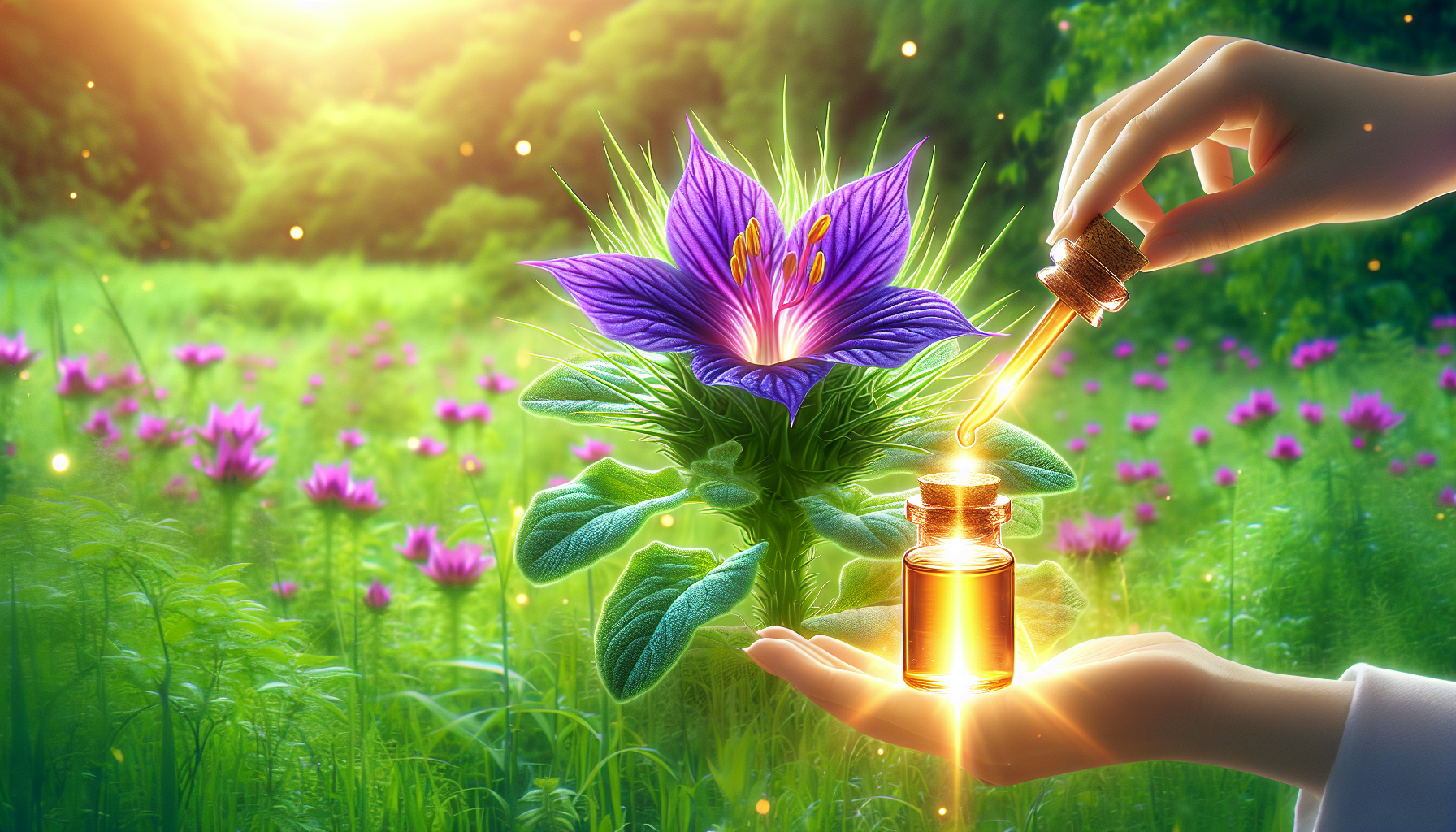
Bakuchiol, a natural ingredient, originates from the Psoralea Corylifolia plant, colloquially known as the babchi plant. What makes bakuchiol stand out in the realm of skincare is its retinol-like functional compound. It exhibits similar skin-improving effects as retinol but without the potential side effects such as dryness, peeling, and irritation. This makes it a more suitable option for sensitive skin, and those who find it challenging to tolerate retinol.
In addition to promoting skin cell turnover, beneficial for skin health, topical bakuchiol provides anti-aging effects on par with retinol. There’s no significant difference in efficacy between bakuchiol and retinol, making bakuchiol a viable natural alternative with comparable skin-improving effects.
Bakuchiol's History and Traditional Uses
Bakuchiol has a rich heritage in traditional medicine. It’s been used in both Ayurvedic and Chinese medicine for treating diverse skin conditions and a variety of other health issues. This plant extract is known to refine skin texture and improve overall skin appearance. The working mechanism of bakuchiol involves the regulation of gene expression profiling, akin to retinol, but devoid of the usual harsh side effects associated with the latter.
Historically, bakuchiol has been recognized for its ability to boost collagen production, demonstrate antimicrobial and anti-inflammatory properties, and deliver anti-aging effects. These qualities have contributed to its widespread use in a variety of traditional herbal remedies and modern-day skincare products.
Bakuchiol's Skincare Benefits
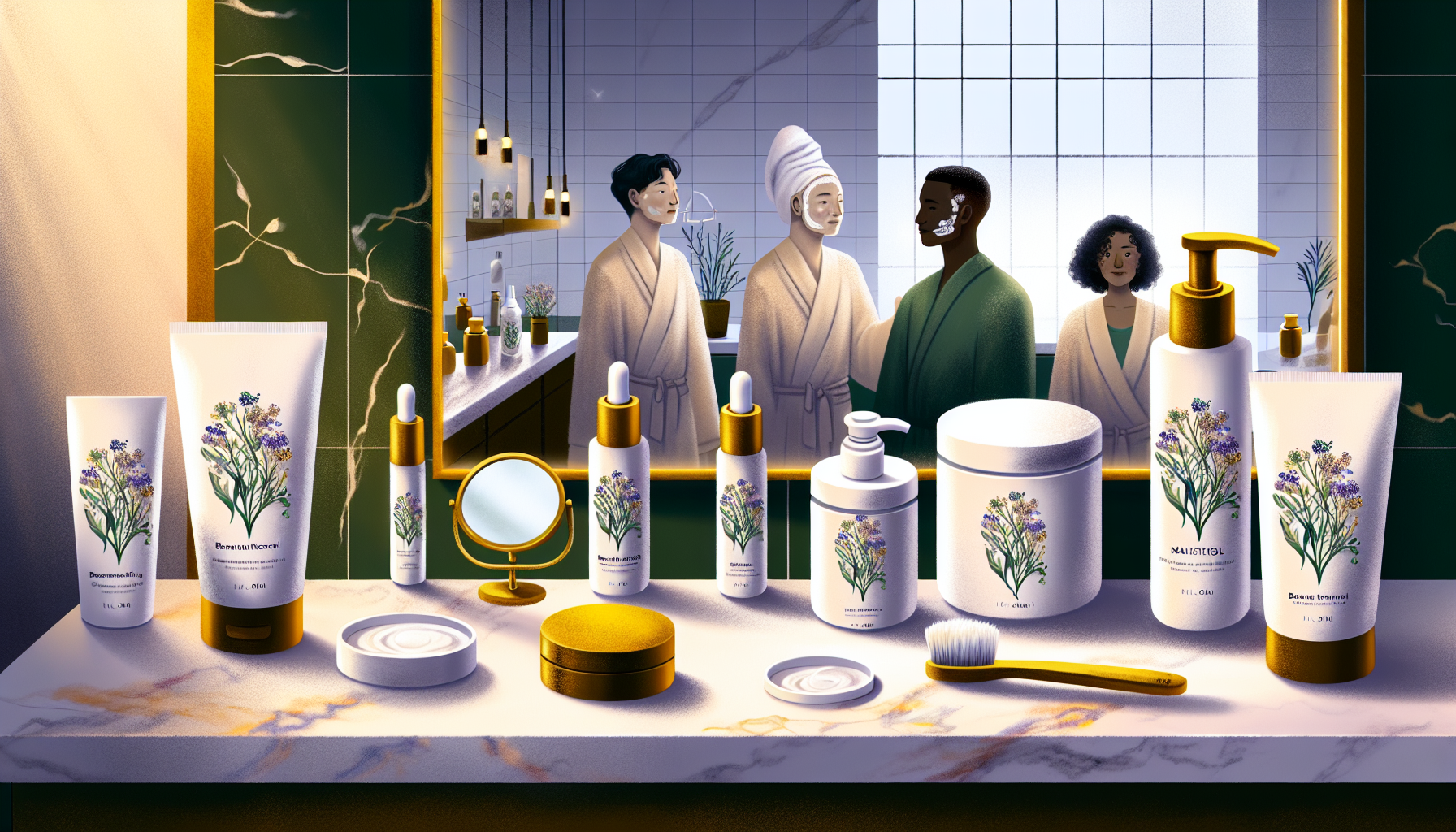
The skincare benefits of bakuchiol are numerous. It confers anti-aging advantages by augmenting collagen production, leading to smoother and more youthful-looking skin. Its effectiveness has been supported by cosmetic and clinical research. But that’s not all! Bakuchiol also improves skin tone and texture by stimulating cell turnover, which reduces hyperpigmentation and a smoother, more even complexion. It’s a valuable addition to skincare routines for those seeking natural alternatives to retinol.
Additionally, bakuchiol is beneficial for acne-prone skin. It targets active breakouts, aids collagen renewal, enhances skin tone and texture, and could potentially assist in healing acne scars. It also provides soothing effects for individuals with sensitive skin. With all these benefits, bakuchiol helps you achieve radiant skin.
Anti-Aging Effects
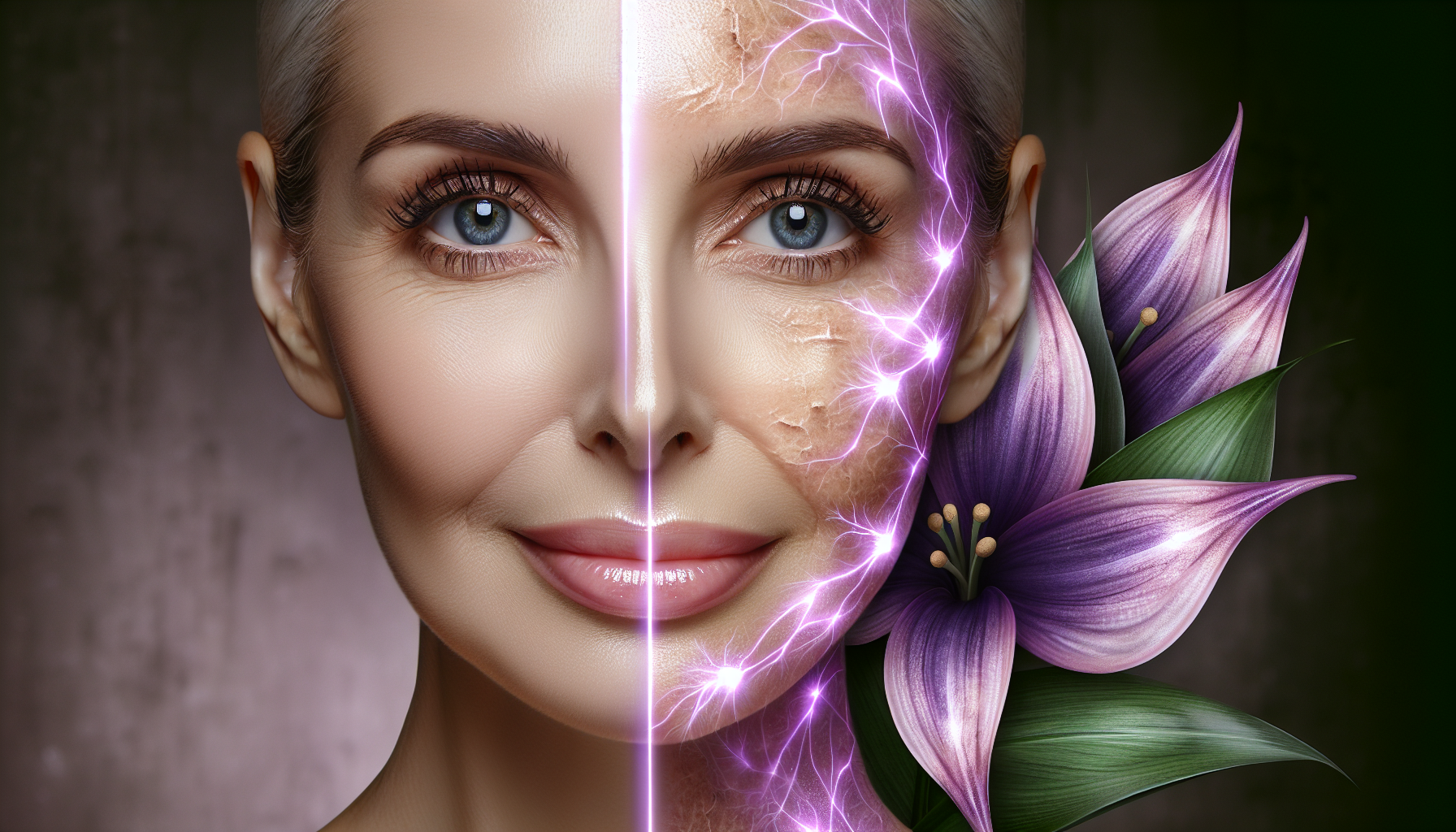
One of the most sought-after benefits of skin care products is their anti-aging effects. Bakuchiol is no exception here. It exhibits anti-aging properties by acting as a potent antioxidant, which effectively addresses signs of aging like fine lines and loss of firmness by targeting free radicals. Additionally, bakuchiol functions as an anti-aging compound by regulating gene expression like retinol, but without the harsh side effects commonly associated with retinol. Its effectiveness has been clinically proven.
Bakuchiol effectively reduces fine lines and wrinkles by stimulating skin cell turnover, leading to smoother skin and improved texture. This increased cell turnover results in visible enhancement in skin firmness and overall skin quality, making it an excellent solution for combating skin aging. Scientific studies have shown bakuchiol’s capability to significantly enhance skin firmness. These studies have observed substantial improvements in lines, wrinkles, elasticity, and an evident reduction in overall firmness.
Skin Tone and Texture Enhancement
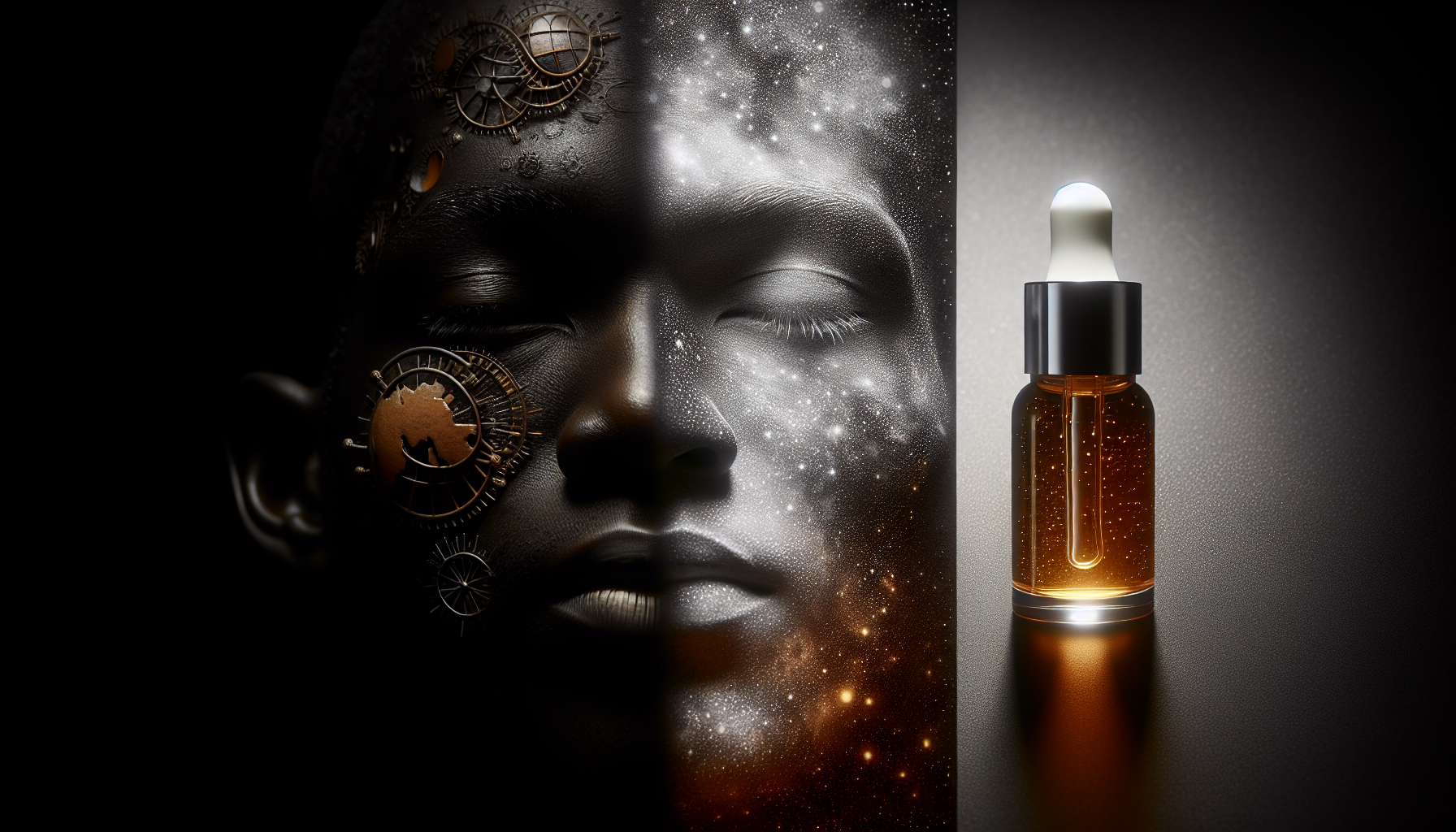
Bakuchiol doesn’t just stop at anti-aging. It also plays a significant role in improving skin tone and texture by promoting cell turnover, which results in a reduction in hyperpigmentation and a smoother, more even complexion. Incorporating bakuchiol into your skincare routine can result in more radiant skin. It’s a haven for those seeking to improve their skin tone and overall complexion.
The use of bakuchiol can lead to improvements in skin tone and texture, as well as addressing signs of aging like fine lines and wrinkles. It’s a win-win for those who want to protect their skin from aging and improve skin tone at the same time.
Acne and Sensitive Skin Support
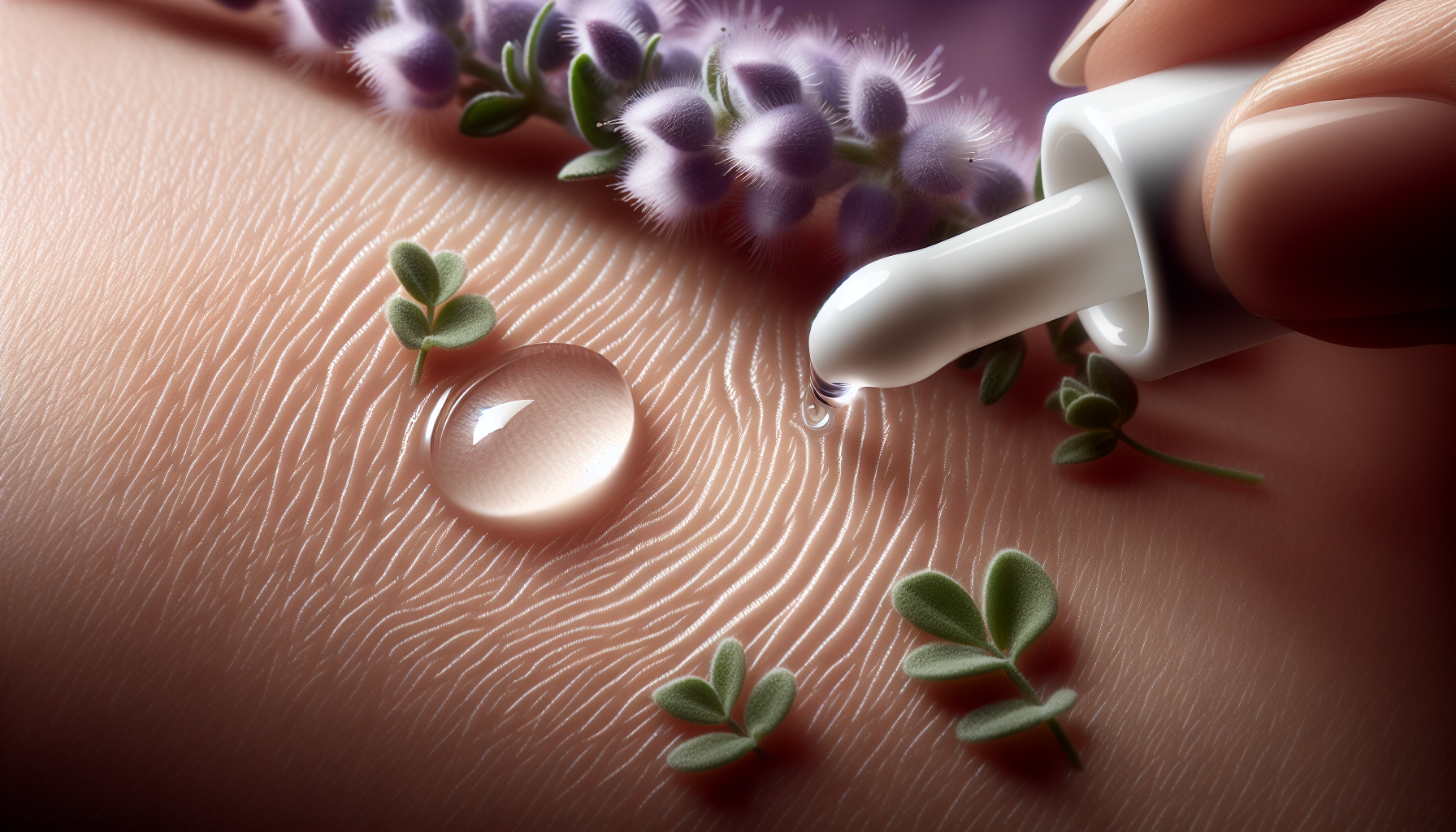
For those with acne-prone or sensitive skin, bakuchiol is a boon. It functions on human skin, particularly for those with sensitive skin, by activating collagen-producing receptors in the skin, similar to retinoids, but with a lower risk of side effects, making it a milder alternative. Research has indicated that bakuchiol possesses anti-aging, antibacterial, and anti-inflammatory properties. This makes it especially advantageous for individuals with sensitive skin.
Bakuchiol’s effectiveness for acne-prone skin stems from its capacity to diminish lesions and enhance post-acne skin texture, making it a favorable choice for individuals seeking an effective yet gentle treatment. It’s considered calming and soothing because of its potent antioxidant properties, its ability to reduce skin discolorations, and its anti-inflammatory effects, which work together to help soothe and calm the skin.
How to Incorporate Bakuchiol into Your Skincare Routine
Now that you’re aware of the myriad benefits bakuchiol provides, let’s explore ways to include it in your skincare regimen.
Incorporating bakuchiol into your skincare routine can provide deep moisture and hydration. Here are the recommended steps for applying bakuchiol to the skin:
- Cleanse and dry the skin.
- Apply two to three drops of bakuchiol serum.
- Mix with a facial oil to enhance your skin’s texture and radiance.
- Follow up with a moisturizer to seal in the benefits.
To optimize skin benefits, it’s suggested to apply bakuchiol both in the morning and evening as a part of your daily skincare regimen.
Choosing the Right Bakuchiol Product
Selecting the appropriate bakuchiol product is crucial to harness its full potential. The concentration of bakuchiol in skincare products plays a significant role in determining their effectiveness. Higher concentrations of bakuchiol can result in more potent antioxidative efficacy, thereby enhancing the anti-aging benefits of the products. Recommended bakuchiol products for general skin types include Herbivore Bakuchiol Retinol, Isdin Isdinceutics Melatonik Serum, and Paula’s Choice Clinical Discolouration Repair Serum. For sensitive skin, products like Moon Fruit 1% Bakuchiol + Peptides Retinol Alternative Serum, Clinical Discoloration Repair Serum, and Glow Cycle Retin-ALT Power Serum may be beneficial.
Bakuchiol serums are formulated to be lightweight and quick to absorb, delivering a concentrated amount of active ingredients. On the other hand, bakuchiol oils, derived from babchi plant seeds, are richer and serve as a moisturizing alternative. Oils are typically a more cost-effective option when compared to serums.
Combining Bakuchiol with Other Ingredients
Certainly, bakuchiol can be paired with other advantageous ingredients to amplify its effects. Many skincare products contain bakuchiol along with complementary ingredients to maximize its benefits for the skin. The answer is a resounding yes. Bakuchiol can be safely combined with almond and avocado oils, peptides, and azelaic acid. The combination of bakuchiol and retinol in a skincare routine can provide enhanced anti-aging benefits, such as reducing the appearance of fine lines and wrinkles, improving skin texture, and promoting a more radiant complexion.
Additionally, when bakuchiol and hyaluronic acid are incorporated into a skincare routine, bakuchiol’s gentle anti-aging properties work synergistically with the exceptional hydration capabilities of hyaluronic acid, creating a harmonious approach to addressing aging indicators while preserving skin moisture.
Bakuchiol Safety and Precautions
Despite bakuchiol’s general safety, certain side effects and precautions should be taken into account. Potential initial skin reactions that users may encounter when starting to use bakuchiol include allergic contact dermatitis, redness, and irritation. Allergic individuals may exhibit symptoms such as rhinorrhea, sneezing, itchy nose, congestion, teary eyes, and nasal rubbings. It is recommended to discontinue using the product if these reactions occur.
Bakuchiol is generally safe to use, but it is important to be mindful of the potential risk of sensitivity, which may present as redness and dryness.
Side Effects and Initial Reactions
Upon commencing bakuchiol, individuals may expect common initial reactions like:
- redness
- dryness
- stinging
- tingling
- tightness
- purging
It’s important to note that allergic reactions are rare. To effectively manage the initial side effects of bakuchiol use, individuals can start by using the product slowly and gradually increase the frequency to help their skin adapt. It is recommended to initially use it two or three times per week and support the skin with moisturizers and hydrating products to minimize dryness and irritation.
The initial reactions to bakuchiol typically last between 4 to 6 weeks as the skin adjusts to the new treatment. For initial use, a bakuchiol concentration ranging from 0.5 percent to 1 percent is recommended as it is considered low and safe and can help reduce the likelihood and severity of initial side effects.
Bakuchiol Use During Pregnancy
Pregnancy brings about numerous changes, including skin changes. Bakuchiol is generally deemed safe for use during this period. However, pregnant women should consult their healthcare provider before starting to use it, as there is limited safety data available.
It’s worth noting that dermatologists advise using bakuchiol as a pregnancy-safe alternative to retinol, and suggest using it 1-2 times daily for anti-aging care during pregnancy. However, as with all skincare ingredients, if you’re pregnant or nursing, it’s always a good idea to consult your healthcare provider before making any changes to your routine.
Expert Insights: Board-Certified Dermatologist Q&A
Expert opinions are invaluable for comprehending the benefits and safety of skincare ingredients. Let’s examine the views of board-certified dermatologists on bakuchiol. According to clinical studies, bakuchiol has been found to:
- Be comparable to retinol in its ability to improve photoaging
- Have high antioxidative efficacy
- Be generally better tolerated than retinol, making it a favorable alternative.
Dermatologists advise using bakuchiol once or twice daily, either in the morning or evening, for its benefits in preventing:
- fine lines and wrinkles
- improving pigmentation
- improving elasticity
- improving firmness
Large-scale clinical trials have been carried out on bakuchiol, demonstrating its anti-aging effectiveness and safety.
Clinical Research on Bakuchiol
Clinical research on bakuchiol is still emerging, but the studies conducted so far show promising results in terms of its effectiveness and safety. The clinical research findings indicate that bakuchiol is effective at:
- Erasing fine lines
- Improving skin color
- Reducing hyperpigmentation
- Increasing collagen production
- Providing antioxidant benefits
It has also been clinically assessed for its anti-aging efficacy and safety.
Clinical studies have found that bakuchiol:
- Is comparable to retinol in addressing photo aging and diminishing fine lines
- Is a viable natural alternative to retinol with comparable skin-improving effects
- Is considered to be better tolerated than retinol, suggesting that it may have a more favorable safety profile, particularly for individuals with sensitive skin.
Dermatologist Recommendations
Dermatologists recommend bakuchiol as a gentler alternative to retinol, especially for those with sensitive skin or who are pregnant. They consider bakuchiol to be a gentler alternative to retinol, suitable for those with sensitive or eczema-prone skin due to its properties. Dermatologists advise using bakuchiol as a pregnancy-safe alternative to retinol and suggest using it 1-2 times daily for anti-aging care during pregnancy.
It is suggested to include bakuchiol in your skincare routine by:
- using it in the morning or evening, up to twice daily
- applying products with bakuchiol for at least twelve weeks
- Use bakuchiol oil at night if you have dry skin
Bakuchiol is well tolerated and can be helpful for issues such as anti-aging and pigmentation.
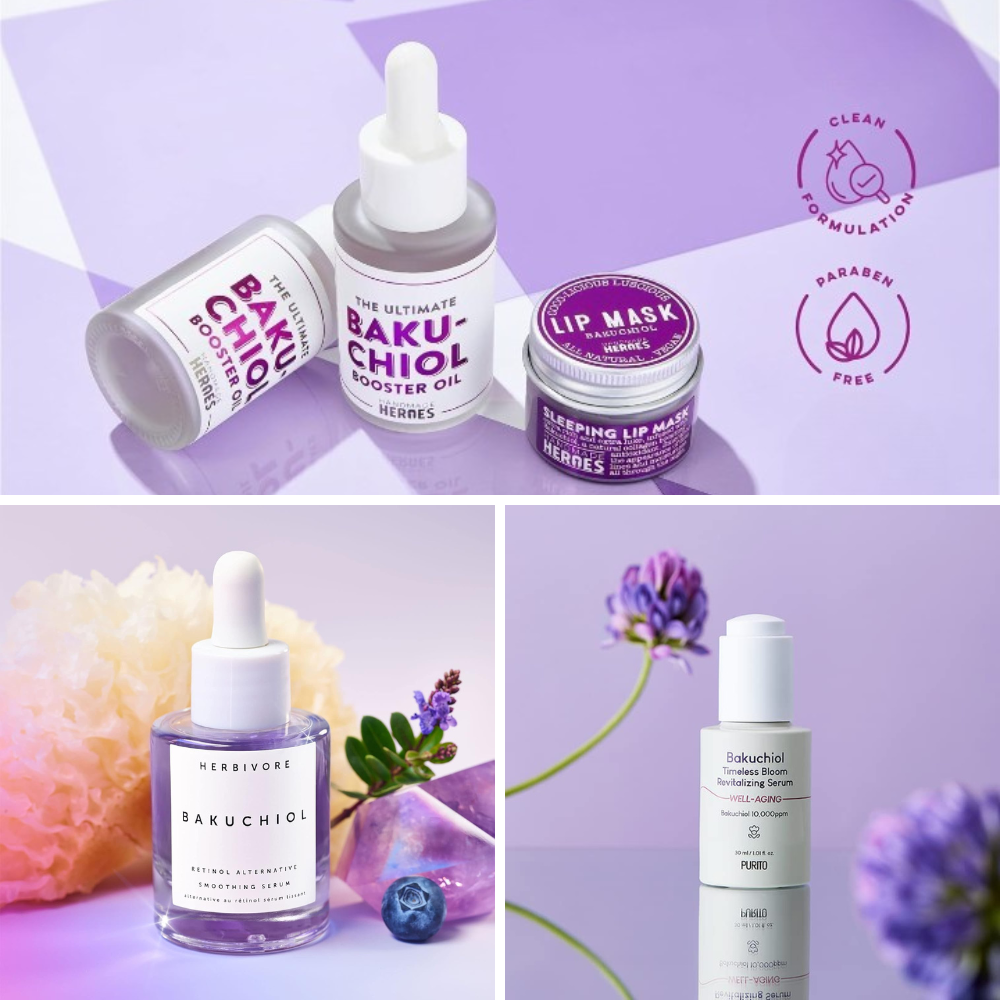

Is bakuchiol better than retinol?
Yes, bakuchiol is better than retinol because it does not make your skin more sensitive to sunlight, reducing the risk of sunburn. This makes it safer to use during the day.
What does bakuchiol do for your skin?
Bakuchiol has anti-aging benefits for the skin, including reducing fine lines and wrinkles, restoring firmness, refining skin texture, evening out skin tone, and calming the skin, which is beneficial for those with sensitive skin.
What are the downsides of bakuchiol?
Some downsides of bakuchiol include potential sensitivity, redness, dryness, and stinging of the skin, especially with initial use. These side effects have led to the popularity of natural alternatives like bakuchiol.
What to avoid when using bakuchiol?
Avoid combining bakuchiol with glycolic acid, as it could potentially degrade its formula. Additionally, it is recommended to avoid using bakuchiol with vitamin C or retinol products, as they may cause irritation. It is also important to patch test before incorporating bakuchiol into your skincare routine to ensure compatibility with your skin.
What makes bakuchiol a good alternative to retinol?
Bakuchiol is a good alternative to retinol because it offers similar skin benefits without the potential side effects, making it more suitable for sensitive skin.

In summary, bakuchiol is an exciting, natural alternative to retinol. It offers similar skincare benefits, including anti-aging effects, skin tone and texture enhancement, and support for acne-prone and sensitive skin, without the harsh side effects often associated with retinol. It’s a wonderful addition to any skincare routine, whether you’re looking to combat signs of aging, improve skin tone and texture, or provide support for acne-prone and sensitive skin. Remember to consult with a healthcare professional before starting new skincare products, especially if you’re pregnant or nursing.
